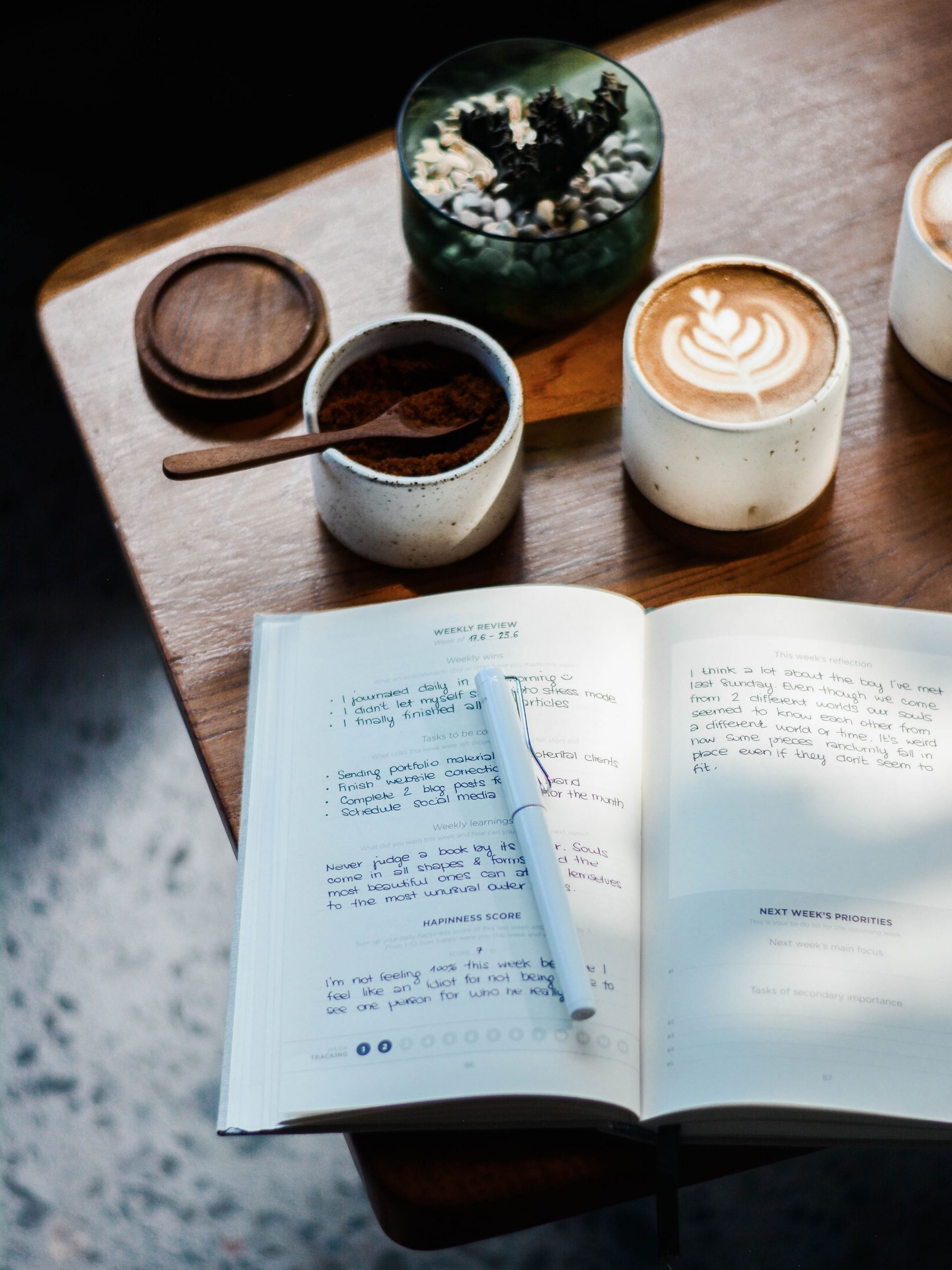Journaling and Wellness
By: Maddie Boyer
When it comes to practicing wellness, journaling is one of my absolute favorite activities. With so much happening all around us, journaling is a great way to slow down and recenter yourself. However, getting into journaling can also be very overwhelming. You may be thinking, “Is this really something I have to commit to doing every day? Where do I even start?” The good news is, with so many types of journaling options, there is bound to be one for you. We’re going to highlight a few of our favorites as inspiration on how to get started.

Bullet Journaling
You’ve undoubtedly seen pictures of bullet journals. Bullet journals are versatile and allow you to express whatever you want in any way you want. Common things to include are calendars, lists, to-dos, and goals. This type of journal is a great way to visualize progress on your goals and tasks, which can help contribute to a sense of accomplishment as you check things off.
Bullet journals are great for keeping track of the many moving pieces of your life. It serves as an organizer, a place for creative expression, and a way to break everything going on in your life into sections. Unlike other journals, bullet journals typically have everything in a single book (from fitness tracking to gratitude, etc.). They also typically involve using bullet points (hence the name) rather than full sentences like you may find in other types of journaling. If you’re the organized or artistic type, this may be the perfect option for you!
Gratitude Journaling
Confession time: I’ve tried for years to get into journaling, and gratitude journaling is the one type I’ve been able to stick to. This may be in part to the recommended journaling schedule; rather than forcing yourself to write in your gratitude journal every day, people who make journal entries only occasionally (once or twice a week) have been tracked to show higher levels of satisfaction. The key here is authenticity. Journaling is meant to be a personal outlet, and therefore logging instances in which you feel truly grateful rather than forcing yourself to reflect is one method to take with this. Since I tend to forget to journal when I do it daily, keeping a gratitude journal in which I write whenever there is a moment I truly want to reflect upon is a good fit for me. However, this method is adaptable and if you find that looking for daily moments of gratitude is more effective for you, go for it! Practicing gratitude is shown to have many benefits, from increased happiness and life satisfaction to better sleep. Writing down gratitude helps you visualize the meaning and good within your life as well.
One Line a Day Journaling
One Line a Day journaling is exactly what it sounds like: writing down one sentence per day. These books typically come in journals of five-years if you buy a designated journal, but you can also use any journal for this same purpose. The beauty in this is that this single line can be whatever you want it to be. Whether that is a lesson you learned, a thought that came to mind, or something about your day, these single lines become a beautiful and easy way to look back on the years in your life. You never know, what may feel mundane now may feel incredibly significant looking back in five years.
Free Writing
Free Writing is most likely what first comes to mind when you think of journaling. In this form, you are able to freely put down your thoughts and unpack them as necessary. For some, this type of journaling may be ideal as there is no “right” way of doing it. For others, the lack of structure or format may be overwhelming. Wherever you fall on the spectrum, free journaling offers the ability to incorporate whatever other forms of journaling you prefer and make the experience your own. If this form of journaling feels right for you but you don’t know where to begin, try journaling prompts! These can easily be found online and can be a great place to find inspiration on how to get started.
At its core, journaling’s purpose is simply to reflect on your life and write it down. It allows you to capture lessons learned, draw meaning from situations, track your progress, and better remember memories. In this way, journaling can greatly influence wellness. As you begin to find more meaning in your life, visualize what you are grateful for, or keep track of the progress you are making that you may not see otherwise, journaling provides a great space to get to know yourself, celebrate your victories, and learn from hard lessons. The act of journaling may become a form of relaxation. Whatever form you choose to pursue, journaling is bound to have a positive impact on your wellness and life.
Follow Campus Rec on Facebook and Instagram for more content!
